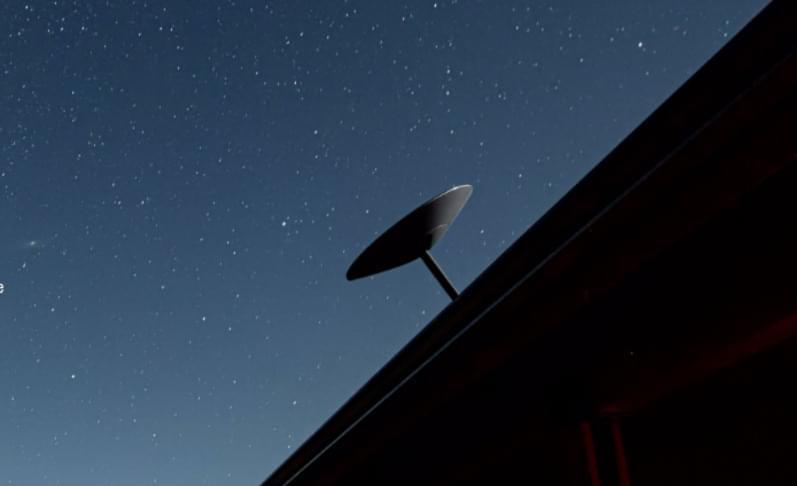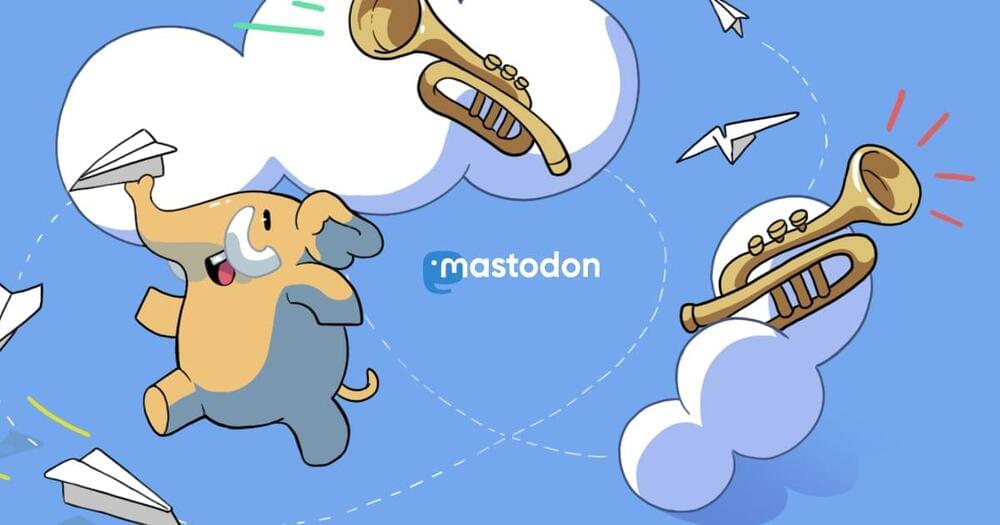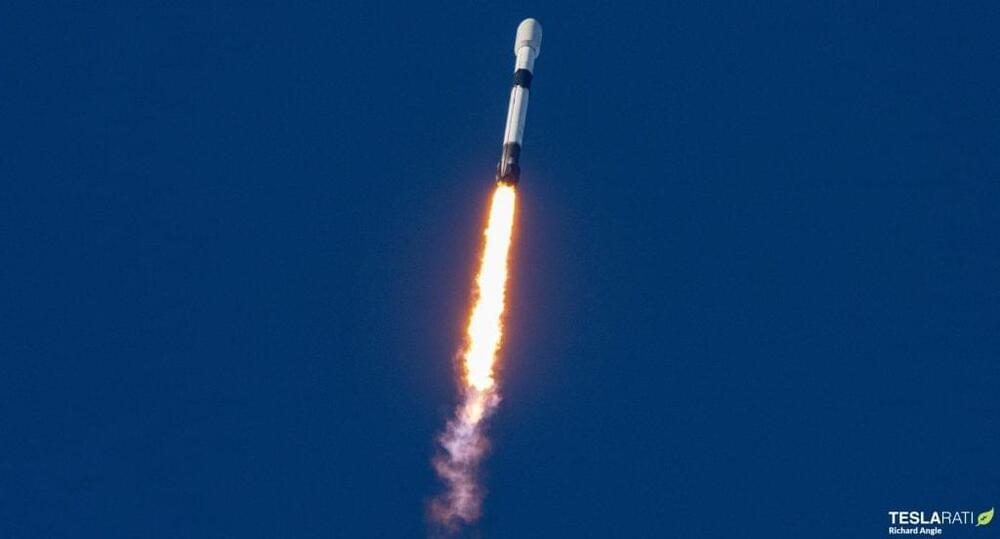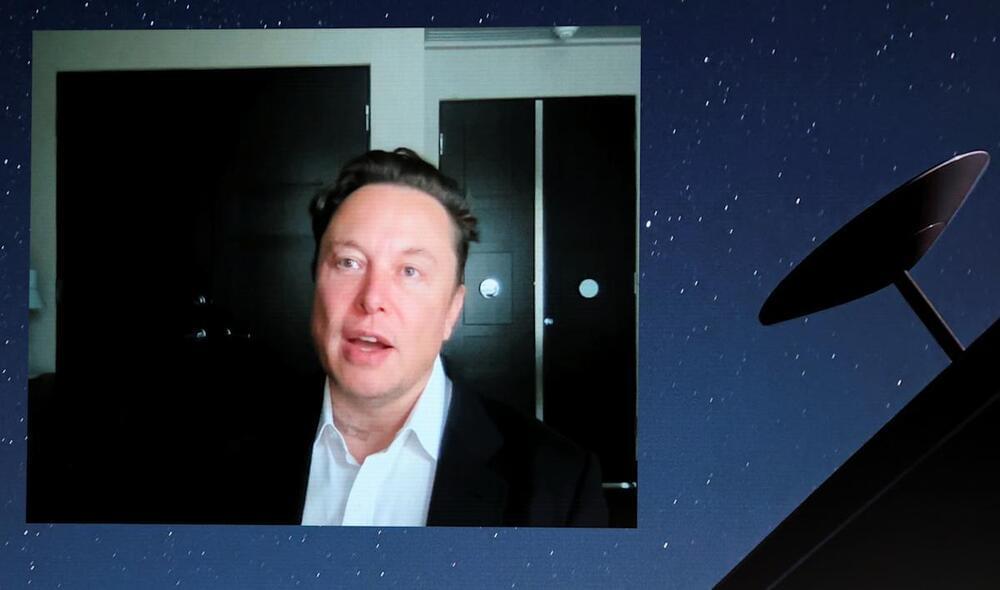
Category: internet – Page 160


Mastodon: We shall see what will happen to Twitter, as we all remember Myspace, and Facebook’s flaws
I am going another route, and think Lifeboat, and others to may want to think about accounts with Mastodon, and others. We often empower what we don’t like and complain about. How does Mastodon work? Well for starters you can get a dedicated server, you moderate yourself, 🙄…and:
“Mastodon is a social media network comprised of nodes (called ”servers” or ”instances”), each running special software. Anyone can run their own Mastodon instance (if they have the proper dedicated server), which can then link to others in a federation or remain private. Individuals or companies can have complete control over individual Mastodon servers, so there are still centralized points of administration, but it’s not as concentrated as in the case of Twitter, Tumblr, or Facebook.
The Mastodon software is open source. It is based on an open-source social networking protocol called ActivityPub, which is developed by the World Wide Web Consortium (the same organization that maintains standards for the web.)
https://www.howtogeek.com/801927/a-twitter-alternative-how-does-mastodon-work/
Mastodon is an open source decentralized social network — by the people for the people. Join the federation and take back control of your social media!

Web3 and blockchain technology: How digital asset ownership is flipping the current business model on its head
Lately, there’s been no shortage of talk about the transition to Web3, a new digital frontier powered by blockchain and accessible via decentralized applications (dapps). But while many of the products created thus far are groundbreaking — offering verifiable digital ownership and access to new financial instruments — they still haven’t managed to galvanize mainstream adoption yet.
To reach critical mass, the blockchain industry needs to ensure that platforms and services are easy to use as their current-gen counterparts. ## **We aren’t there yet**
The current landscape of the internet is still very much grounded in Web2 architecture. While users can access a range of services, each requires its own unique username and password and third-party platforms are typically still needed to process payments. While this model has ostensibly worked well enough for the past two decades, it’s been mired by the centralized control of big tech companies, which thrive on selling user data.

SpaceX smashes Falcon 9 booster turnaround record
SpaceX has successfully launched and landed the same Falcon 9 booster twice in three weeks, smashing the current record for orbital-class rocket turnaround.
The existing record was also held by Falcon 9 and set in early 2021 when booster B1060 launched a Turkish communications satellite and a batch of Starlink spacecraft just 27 days and 4 hours apart. Now, just under 15 months later, a new Falcon 9 booster has decisively taken the crown.
At 5:27 pm EDT, Falcon 9 B1062 lifted off as planned from SpaceX’s Cape Canaveral Space Force Station (CCSFS) Launch Complex 40 pad. Flying for the sixth time, the reused booster carried an expendable Falcon upper stage, fairing, and a batch of 53 Starlink V1.5 satellites most of the way out of Earth’s atmosphere to a velocity of 2.2 kilometers per second (Mach ~6.5) before separating and landing on a SpaceX drone ship.

Elon Musk’s SpaceX Shuts Down Russian Jamming Attack!
When it comes to responding to emerging threats, the Pentagon’s director for electromagnetic warfare suggested today that the US military’s electronic warfare organization should borrow a leaf from SpaceX.
SpaceX founder Elon Musk said that Russia had jammed Starlink terminals in Ukraine for hours at a time after SpaceX shipped Starlink terminals to Ukraine in February in an apparent effort to help Ukraine preserve its internet connection amid the war with Russia. Starlink was back up and running after a software upgrade, according to Musk, who added on March 25 that the constellation had “resisted all hacking & jamming attempts” in Ukraine.
Assuming Musk — who is known for being a showboater in his public pronouncements — is giving an accurate image, a private company thwarting Russian EW attempts with software updates is the kind of thing that makes Pentagon EW experts sit up and take notice.
“That’s wonderful from the standpoint of an EW technologist. Dave Tremper, head of electronic warfare for the Pentagon’s acquisition office, remarked, “That paradigm and how they executed that is sort of eyewatering to me.” “We need to be able to upgrade in the same way that Starlink was able to when a threat appeared. We need to be able to modify our electromagnetic posture quickly, and we need to be able to change what we’re attempting to do without sacrificing capabilities.”
Subscribe — https://bit.ly/3lPAZZ3
Subscriber Edit 010 — SpaceX Starbase Driving Tour With Starlink V3 April 23 2022 | Jessica Kirsh
Jessica gives us a driving tour of SpaceX Starbase Texas with a Starlink V3 terminal strapped to the roof of the Kirsh Kona! And Anthony Gomez from Rocket Ranch also makes an appearance to give us some Starbase safety tips. Follow Anthony on Twitter @AnthonyFGomez.
https://www.rocketranchbocachica.com.
This subscriber video edit was provided by subscriber, channel member and channel moderator, Nik Lovell. Follow Nik on Twitter @nik_lovell.
Link to original live stream:
Music:
“Cosmo — Arpeggios” (Shutterstock)
Please consider supporting the channel on Patreon:
http://www.patreon.com/jessicakirsh.
Please consider joining the channel on YouTube:


This 16g open-source autopilot can make drones smarter, safer
ModalAI, a Blue UAS framework manufacturer of autonomous drone technology, says it has developed the world’s smallest and most advanced autopilot built in the USA. Weighing only 16 grams, ModalAI’s VOXL 2 is designed specifically for GPS-denied, autonomous drones with obstacle avoidance.
It is powered by the Qualcomm Flight RB5 5G platform and integrates a PX4 real-time flight controller with an 8-core CPU, a GPU and NPU that provide a combined 15 Tera Operations Per Second (TOPs), seven image sensors, and TDK IMUs, and barometer.